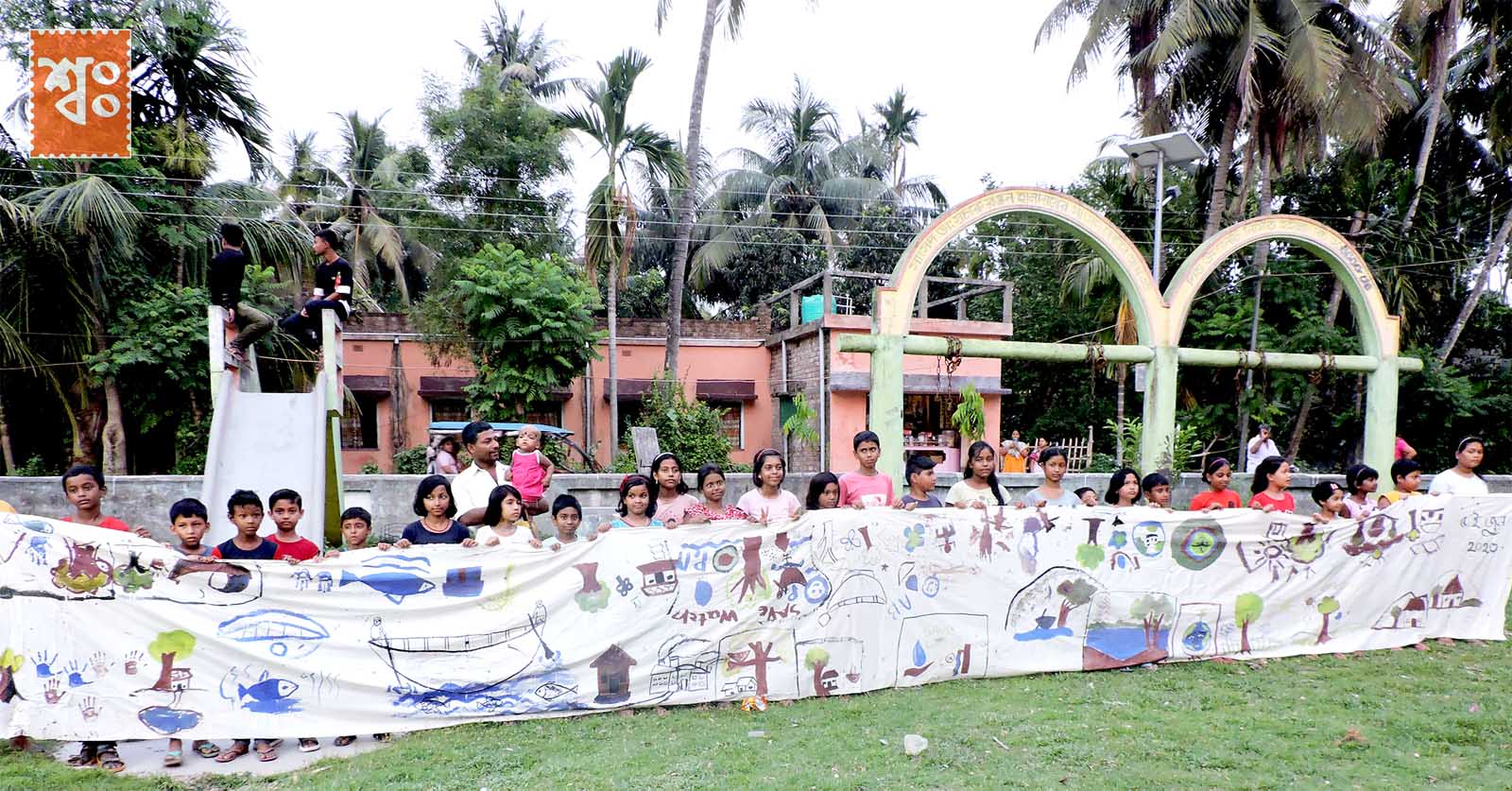Water Body
One of the major challenges in the world today is to recognize, maintain and/or enhance the beneficial contributions of nature to people with minimum distortions to the local ecology. Using both qualitative and quantitative methods and a context-specific perspective, the present study identifies and assesses various cultural ecosystem services people obtain from traditional water bodies in West Bengal, India.
India is endowed with diverse and distinct water bodies. Water is an important aspect for development which it is linked with every Sustainable Development Goal (SDG). It is essential and fundamental for life itself. Water is a recyclable resource but its availability is limited and the gap between the supply and demand is widening over time. Therefore, concerted efforts are needed to conserve and preserve water bodies.
Traditional water bodies are rapidly depleting due to human activities that are essential for the improvement of the overall well-being of people.
On 27th May 2023, SWAH embarked on another long aspired work of conservation of water-body; on Tungi Bil of Majhdia.
SWAH got support from Shri Aniruddha Dey (Chairperson-Prism), Shri Atanu Kumar Dey (member-Prism), and Shri Rabishankar Bhattacharjee (member-Prism).
Shri Sangeet Rakshit and Shri Tathagata Chakraborti from SWAH take them to the natural Oxe-bow lake-like water body at Tungi village, where the use of chemical pesticides is causing the depletion of its natural ecology. Then, visited the riverbed of river Ichaamati, where the land is cataclysmically dry and can cross barefoot. They saw stagnant and water-hyacinths-locked water of rivers Mathavanga and Churi. These rivers also worked as drainage systems for industrial activities hence destroying the entire ecological balance of the region, as claimed and reported by local farmers and residents.
SWAH will take a comprehensive project plan based on surveys and expert advice to aware people and society of the impending and sustained disaster caused by unplanned and vested interest-oriented destruction of our ecological balance. SWAH shall also work for its restoration.

On 15th June, SWAH organized another field visit to Majhdia for waterbody conservation. The specific purpose was :
1) Drone photography of waterbodies: Tungi Bill, River Ichaamoti, Mathabhanga, and Churni as the natural flow of these rivers is obstructed by the rapid human interference in nature in the name of so-called development, also such development has pushed these rivers to the edge of annihilation, SWAH is documenting the current situation with the help of experts and technology to chalk-out a comprehensive plan of the possible revival of these rivers,
2) Tungi Bill conservation,
3) Better management of Plastic waste,
4) Interacted with Jute farmers and discussed alternative possibilities of jute decomposition
5) And more ecological fish farming discussed with small fish farmers.
We had a bigger team for the day: and members are –
1) Prof. (Dr.) Sheikh Touhidul Hossain, Director, IRS, Jahangir Nagar University, Dhaka, Bangladesh;
2) Dr. Abul Hossain, Principal Scientist, Central Fisheries Research Institute, Kolkata, India;
3) Shri Atanu Kumar Dey, Founder Member, Prism and Environmental Development Activist;
4) Shri Ashish Dan, Founder Member, Prism and Environmental Development Activist;
5) Shri Chandan Mukhopadhyay, Volunteer, Prism and Environmental Development Worker;
6) Shri Zubair Arun, IRS, Jahangir Nagar University and
7) Dr. Aniruddha Dey, Chairperson, Prism.
On behalf of the SWAH: Shri Sangeet Rakshit, Shri Tathagata Chakraborti, and Shri Arijit Ray coordinated and facilitated the entire arrangement.
Drone Mapping of Waterbodies done with great effort, along with meetings with Jute and Fish farmers.
SWAH has decided that analysis of the footage and continuing research thereupon shall continue. Discussion with farmers shall also continue to analyze the situation and some amicable solutions to be met.
Meanwhile, SWAH shall continue to work for the socio-cultural development of the village to achieve its goal of economic progress in the concerned area.

